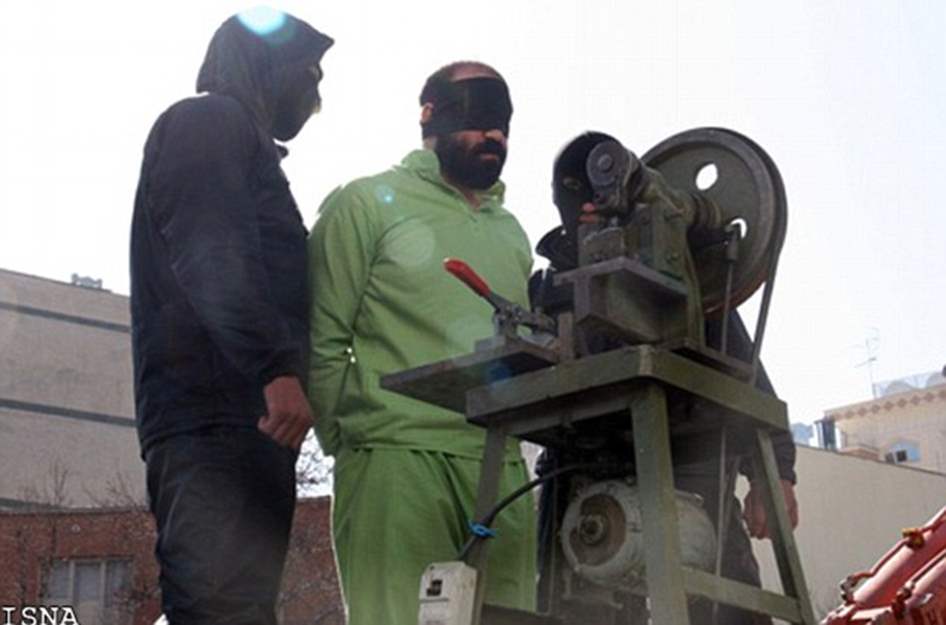November 01, 2019

held in public and using Iran’s new finger guillotine—a few years ago.
A provincial government announced October 23 that it had amputated the fingers of a convicted criminal.
This was the first such punishment seen by the Iran Times since January 17, 2018, when a 38-year-old man had his fingers amputated for stealing sheep, jewelry and motorbikes. This newspaper’s tabulation of amputations shows 60 since 1997. But the Iran Times makes no claim that this list is complete. And the Iran Human Rights Monitor says in the decade from 2007 to 2017 it tracked 215 amputation sentences with 125 carried out.
The Mazandaran Justice Department did not name the man, but said it cut off his fingers in a prison in Sari, not publicly, for 28 cases of theft. The penalty for repeated acts of thievery is amputation. Amputations do not apply on the first conviction for thievery.
The penal code calls for the amputation of the “full length of four fingers of the right hand in such a manner that the thumb and palm of the hand remain.” For several years, the regime has used a special type of guillotine that it developed for this purpose.
The statement said the amputation was part of “the Justice Department’s policy to crack down, severely and without hesitation, on those who disrupt public order and security and steal public funds.”
The statement said the public welcomes and expects such punishments.
The International Covenant against Torture bars torture and cruel punishments, but Iran has not signed that agreement.
In 2008, Iran’s ambassador to Spain, Davud Salehi, defended amputation as punishment, saying it was akin to stopping the spread of gangrene in Iranian society.
He said, “Our laws allow for the amputation of the hand that steals. This is not accepted by the West, but the field of human rights should take into account customs, traditions, religion and economic development.”
Some judges in Iran ignore the amputation provision and use alternative sentences. But ultraconservative judges insist on issuing verdicts based on what they say is God’s will.
In 2017, Mashhad Prosecutor Gholam-Ali Sadeqi said, “Awhile ago, a friend of mine asked me why I get involved in everything. Therefore, I should emphasize here that the domain of the prosecutor’s authority is only one phalanx smaller than that of Almighty God.”
Mohsen Kadivar, an Iranian Islamic scholar and author now based in the United States, responded on his website, “Such remarks are an indication of the insatiable greed of the officials of the Islamic Republic for more power and authority.”
